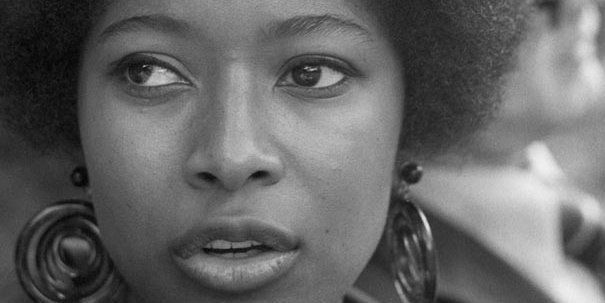Odd Woman Out: Why White Feminists Must Recognize the Beauty of Intersectionality

As a Black woman I am a shape shifter.
Like some mythic character from an Octavia Butler novel my social and emotional DNA holds multitudes.This enables and requires me to constantly transform. I can be female or Mano* or Christian; a cocktail of identities bound together in one body. Intersectionality is where I dwell. Triple or even quadruple consciousness is where I and black women like me make our homes.
Unfortunately, the creators of “Makers: Women who Make America,” the recent PBS documentary chronicling the American women’s movement, seem to be unaware of this truth.
The three-hour documentary detailed the rise of American feminism as it supposedly began in the hearts and minds of dissatisfied housewives and as it was championed by the likes of Betty Friedan and Gloria Steinem. Allow me to say that I appreciated the documentary’s explanation of the origins of the “Feminine Mystique” and coverage of historical events such as tennis player Billie Jean King’s victory in “The Battle of the Sexes.”
However, what I could not ignore was “Makers’” characterization of the battle for women’s advancement in America as one that was championed largely by white women.
The documentary failed to mention indigenous women or Asian-American, Latinas and Middle Eastern women. Black women’s roles were referenced but their work for women’s rights in America was not necessarily positioned as central to the narrative about women’s advancement that film makers were constructing.
The three-hour documentary detailed the rise of American feminism as it supposedly began in the hearts and minds of dissatisfied housewives and as it was championed by the likes of Betty Friedan and Gloria Steinem. Allow me to say that I appreciated the documentary’s explanation of the origins of the “Feminine Mystique” and coverage of historical events such as tennis player Billie Jean King’s victory in “The Battle of the Sexes.”
However, what I could not ignore was “Makers’” characterization of the battle for women’s advancement in America as one that was championed largely by white women.
The documentary failed to mention indigenous women or Asian-American, Latinas and Middle Eastern women. Black women’s roles were referenced but their work for women’s rights in America was not necessarily positioned as central to the narrative about women’s advancement that film makers were constructing.
As someone whose life cannot be divorced from the reality of intersectionality, it is difficult for me to comprehend many white feminists’ disregard for it.
Perhaps this is why for a long time I did not identify as a feminist.
My indifference to feminism was rooted in my perception that feminism and its proponents were erecting a restrictive paradigm of empowered femininity. It seemed to me that the only enlightened women were career women who kept their maiden names and never elected to stay home to care for their children.
In her essay “The Fake Hair Debate” Chicago-based writer Britt Julious writes on group dynamics as they apply to beauty standards in black America.
“One of my larger issues has been and continues to be the idea that black women must live one way or the other…People believe that one way is right… and anything else is wrong. If I’ve learned anything after 24 years, it’s that I feel most comfortable when I am not subjected to what I should be doing as a woman, as a Black woman.”
My long-standing issue with feminism was that I felt it advocated that feminists must be a particular way.
Empowered femininity could not look like the dowdy homemaker or the young woman who was excited about taking her husband’s last name.
In regards to race, the absence of stories and images of black and brown women advancing women’s interests in “Makers” suggests a limited view of the women’s movement and who a feminist actually is.
As a black woman, if I see that only white women are selected to be the face of a movement then I am likely to presume that this movement is not intended for me.
The failure to pay homage to women of color who have advocated for change and the implication that empowered femininity is specific and confined rather than expansive and complicated are what have cultivated my indifference to feminism and my impatience with the “Makers” documentary.
If many white feminists cannot understand that being a powerful woman is an intricate thing how then can they comprehend that the confluence of being both female and black impacts my life in dynamic ways that are difficult as they are they are wonderful?
Feminism is intended to champion freedom.
This movement could be even more powerful if it recognized and created the space for black women and all of women of color to be their beautifully complex selves.
Related:
Celebrities Won't Save Feminism So Leave Beyoncé Alone
Black Feminist Contradictions: We All Got 'Em
Michelle Obama Feminism: For Black Women With Nothing To Prove
Black Feminist Contradictions: We All Got 'Em
Michelle Obama Feminism: For Black Women With Nothing To Prove
Assita Camara is a writer residing somewhere below the Mason-Dixon. She writes about culture at her blog The Afro-Modernist and crafts prose about culture, herstory, and life at her philosophie. You can follow her tweets about music, poetry, and technology at @assitawrites

No comments: